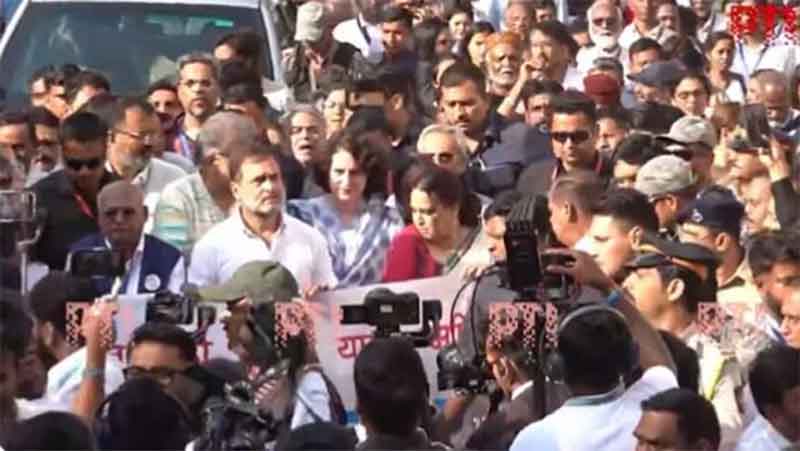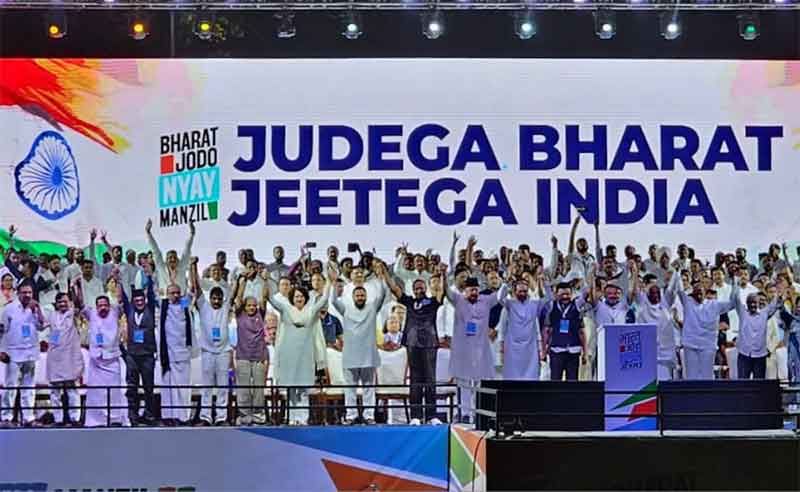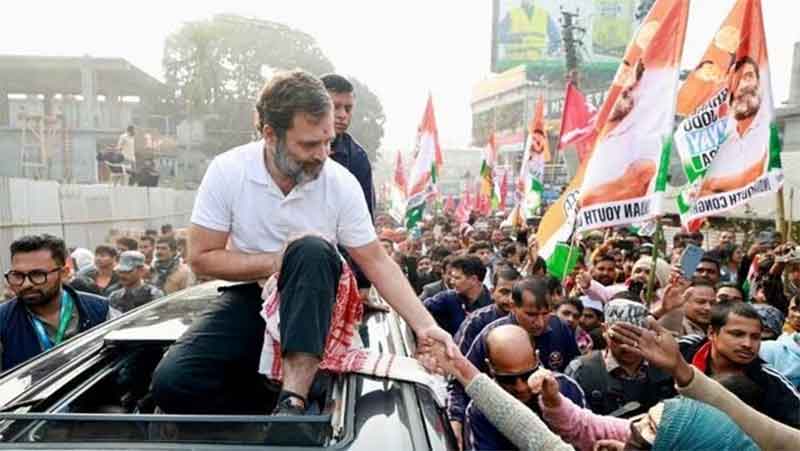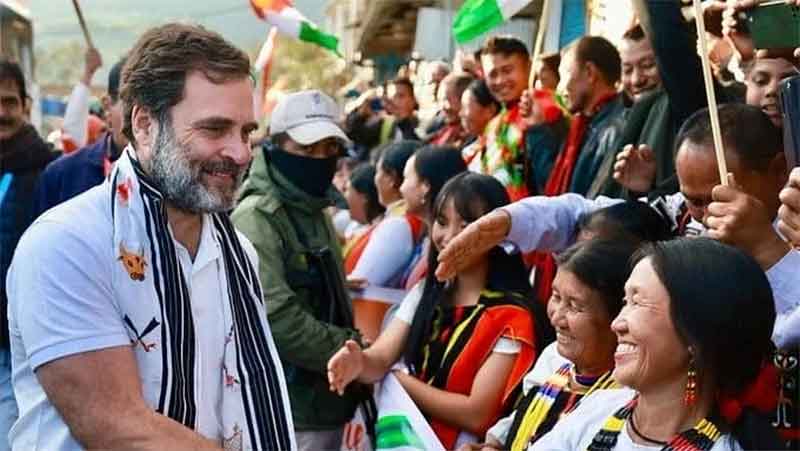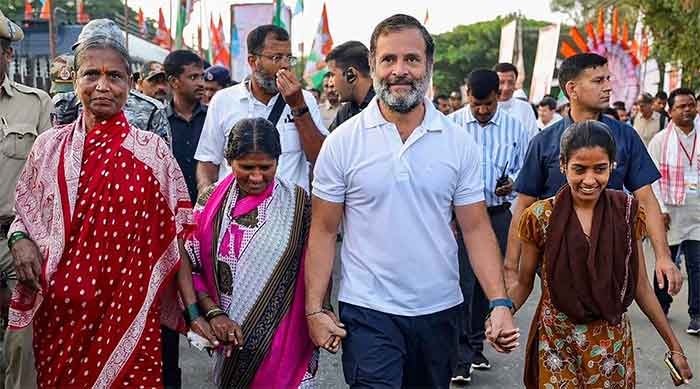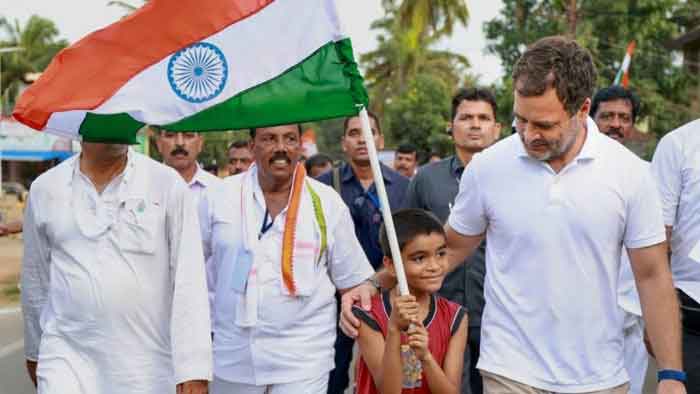
Would it be fair to assume that Congress leader Rahul Gandhi has embarked on a politically correct path by deciding to undertake his “Bharat Jodo Yatra”? Against endless political problems encountered by Rahul and his party, perhaps it was imperative for him to take such a step. There is no doubt that he has eyes set on forthcoming parliamentary polls. The preceding two elections (2014 and 2019) spelling a victory for Bharatiya Janata Party (BJP) with Narendra Modi at helm have apparently left strong lessons for Rahul and his party loyalists. In 2019, Rahul even failed to retain his old parliamentary seat from Amethi. The seat had been held by his family members since 1980 and he himself had held it since 2004. Political foresight had probably guided him to also contest from Wayanad (Kerala), which he won with a margin of more than four lakh votes. This partly explains his decision to begin his march from Kerala, spending around 18 days here. Besides, of 20 seats in Lok Sabha from Kerala, in 2019 Congress won 15 seats, seven more than it had won in 2014.
What perhaps may be viewed as a serious decision by Rahul is to begin his campaign from now. Earlier, political miscalculation and/or perhaps overconfidence witnessed Congress members, including Rahul and his sister Priyanka Gandhi Vadra initiating their campaigns almost when polls (whether parliamentary or assembly) were around the corner. Of course, the nature of their campaign, including Priyanka’s usage of broomstick, earned them substantial media coverage. However, it failed to win them needed votes and seats. Considering that BJP’s saffron brigade activists are engaged almost continuously in campaigning, it has apparently taken sometime for Congress leaders as well as party activists to wake up to need of devoting more time, a little more in advance for scheduled polls.
Bharat Jodo Yatra also signals the hard reality that just road processions, addressing rallies, mingling with Dalits as well as people of other classes, visiting places of worship and similar such moves have been accepted by Congress leaders as not being sufficient to gain people’s confidence as well as votes. These moves and ones mentioned earlier certainly don’t fail in gathering crowds as well as gaining considerable media coverage. But these bear little electoral weight when organized just a little ahead of polls.
Equally significant probably is the need felt to reach out more strongly regionally to party loyalists as well as activists. Simply issuing instructions from capital city cannot be expected to ensure and/or guarantee their support as well as committed services in interest of party at various levels. The long stretch of Yatra covering 3570 km in 150 days is also likely to boost morale of party workers in these areas and perhaps also help local party quarters in functioning with greater energy. The party has a long, tough political road to travel. It appears to have started moving in the right direction after quite a long span.
There is nothing surprising about rivals of Congress apparently being fairly disturbed about this move of Rahul. It has begun at a time when a few regional parties have begun demonstrating their anti-BJP political strategies with greater force than before. Just when BJP was beginning to assume that all, or at least most, political cards are turning in its favour, the tide turned against it in Bihar. West Bengal and Punjab still seem out of BJP’s reach, regionally. There is nothing surprising about BJP attracting Congress members in Goa assembly, where elections were held earlier this year. BJP holds command here. In Jharkhand, where assembly elections are scheduled in 2024, BJP remains in opposition. BJP is probably also fairly alarmed about plans of Aam Aadmi Party (AAP) to extend its base in Gujarat. While BJP may be pleased about AAP having won elections in Punjab, as it has pushed to Congress to opposition here, the situation is different in Gujarat. AAP’s victory in Punjab carries more importance for BJP as defeat of Congress. In Gujarat, AAP’s entry may spell loss of votes as well as seats not just for Congress but also for BJP.
Against this backdrop, several points about Rahul’s road march are probably spelling a political headache for his rivals. Certainly, they haven’t failed in criticizing him, the nature of his march, including his dress and so forth strongly. Interestingly, these – particularly remarks about his dress- appear to have fallen flat. Observers haven’t failed to take note of dress used by BJP stalwarts. Besides, negative campaign of this nature has earned ample media coverage for Rahul and his march. How can his rivals be pleased by this?
Rahul’s march, together with media coverage accorded to it, raises a significant question for his critics as well as rivals, including former Congress members. Would they, particularly former senior Congress members who have chosen to turn their backs towards him, questioning his credibility, have earned the same coverage in most parts of country as well as apparent support at several levels?
Here, it is important to note, just media coverage and gathering of people should not be viewed as sufficient to gain votes in elections. But importance given to issues, including inflation, unemployment and so forth, by Rahul may be expected to significantly puncture negative image promoted about him by his rivals. For a change, during course of his Yatra, Rahul is not refraining from hurling verbal missiles at opponents of Congress. Soon after news of alleged murder of two minor Dalit sisters in Lakhimpur (Uttar Pradesh) hit headlines, Rahul said in a tweet in Hindi, “Women’s safety cannot be expected from those facilitating the release of rapists and welcoming them.” He is apparently referring to recent release of 11 convicts accused of gang-rape in Bilkis Bano case during Gujarat-carnage.
Rahul’s Bharat Jodo Yatra certainly signals that it is as yet too early to ignore his potential as well as that of his party workers and those activists strongly concerned about communal politicking being given greater importance as electoral tools at various levels. It is also too early for Congress leaders to become over-confident about their own electoral mileage. Success is likely to elude them till they take meaningful steps at grassroots and towards their actual as well as probable regional allies. Equally important are political understanding and commitment Rahul succeeds in gaining for primarily electoral success – not just of Congress but together with its allies. It is as yet too early for Congress to speculate success at national level primarily on its own strength!
Nilofar Suhrawardy is a senior journalist and writer with specialization in communication studies and nuclear diplomacy. She has come out with several books. These include:– Modi’s Victory, A Lesson for the Congress…? (2019); Arab Spring, Not Just a Mirage! (2019), Image and Substance, Modi’s First Year in Office (2015) and Ayodhya Without the Communal Stamp, In the Name of Indian Secularism (2006).

